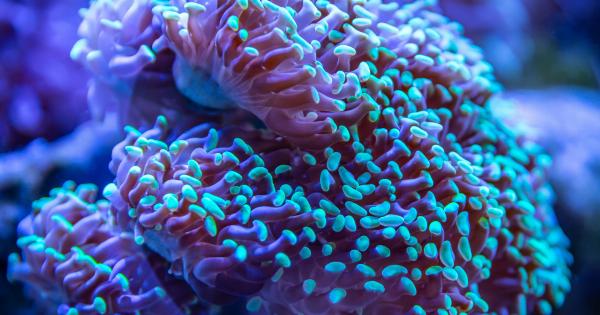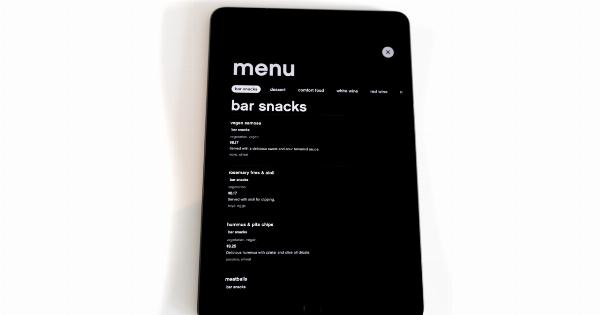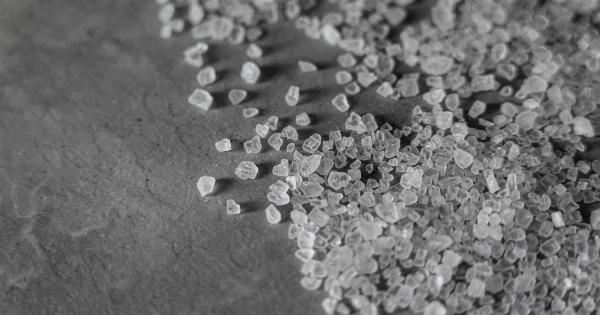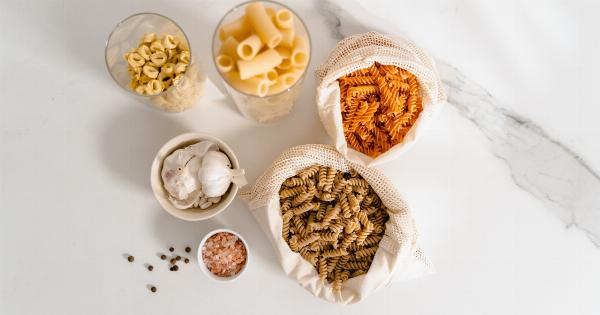Salt is one of the most commonly used seasonings in the world. It enhances the flavor of our food and has been a part of human culinary history for centuries.
However, while salt is undeniably delicious, it is important to be aware of its potential dangers when consumed in excessive amounts. In this comprehensive guide, we will explore the negative health effects of excess salt intake and discuss ways to reduce our consumption for a healthier lifestyle.
The Basics: What is Salt?
Salt is scientifically known as sodium chloride (NaCl). It is a crystalline mineral composed of two elements: sodium and chlorine. Sodium is an essential nutrient that helps regulate fluid balance in our bodies and supports nerve and muscle functions.
However, the excessive intake of sodium can lead to serious health issues.
The Hidden Culprit: How Salt Sneaks into Your Diet
One of the main sources of excessive salt intake is processed and packaged foods. These products often contain high levels of added salt to enhance flavor and increase shelf life.
Fast food, canned soups, snacks, and even some seemingly healthy items like bread and cereal can be significant contributors to our daily salt intake. Consuming these foods regularly can quickly lead to surpassing the recommended daily salt intake.
The Dangers of Excessive Salt Intake
1. High Blood Pressure: One of the most well-known dangers of consuming too much salt is its impact on blood pressure. Excess sodium in the body causes water retention, increasing blood volume and putting a strain on blood vessels.
Over time, this can lead to hypertension, a condition that increases the risk of heart disease, stroke, and kidney problems.
2. Increased Risk of Cardiovascular Diseases: High blood pressure resulting from excessive salt intake is a major risk factor for cardiovascular diseases.
These conditions, including heart attacks and strokes, can be life-threatening and have long-term consequences on overall health.
3. Kidney Damage: Our kidneys play a crucial role in filtering waste products from our blood. The excess sodium in our bloodstream caused by salt consumption can put strain on the kidneys, leading to reduced function over time.
This can contribute to the development of kidney diseases or worsen existing ones.
4. Edema and Fluid Retention: Excessive salt intake can cause fluid retention, leading to swollen feet, hands, and ankles.
This condition is known as edema and is particularly concerning for individuals with heart or kidney problems, as it can exacerbate their conditions.
5. Increased Risk of Osteoporosis: Studies have suggested that a high-salt diet may increase the risk of developing osteoporosis, a condition characterized by weak and brittle bones.
Excessive sodium intake can cause the body to excrete more calcium through urine, potentially leading to reduced bone density and increased susceptibility to fractures.
Reducing Salt Intake: Tips for a Healthier Lifestyle
1. Read Food Labels: Start paying attention to food labels and choose products with lower sodium content. Avoid processed and packaged foods that are often loaded with salt.
2. Cook Meals from Scratch: Preparing meals at home gives you better control over the ingredients you use. Utilize various herbs, spices, and other flavorings to enhance taste without relying heavily on salt.
3. Rinse Canned Foods: If you use canned beans or vegetables, rinse them thoroughly under running water to reduce their sodium content.
4. Choose Fresh Produce: Opt for fresh fruits and vegetables, as they are naturally low in sodium and packed with essential nutrients.
5. Limit Eating Out: Restaurants and fast food chains tend to add excessive salt to their dishes. Minimize eating out and choose restaurants that offer low-sodium options.
6. Be Mindful of Hidden Salt: Be cautious of condiments, sauces, salad dressings, and other common sources of hidden sodium. Explore alternatives or make your own low-sodium versions at home.
7. Gradually Reduce Salt Usage: Gradually reduce the amount of salt you add to your meals. Your taste buds will adjust over time, and you’ll start appreciating the natural flavors of food.
8. Stay Hydrated: Drinking plenty of water helps flush out excess sodium from your body, promoting overall better health.
9. Increase Potassium Intake: Potassium is known to counterbalance the effects of sodium on blood pressure. Include potassium-rich foods like bananas, spinach, avocados, and sweet potatoes in your diet.
10. Seek Medical Advice: If you have pre-existing health conditions or concerns about your sodium intake, consult with a healthcare professional for personalized advice and guidance.
Conclusion
While salt is an integral part of our culinary experience, overconsumption can have severe health implications. By being mindful of our salt intake and adopting healthier habits, we can minimize the risks associated with excessive sodium consumption.
Remember, small steps towards reducing salt can lead to significant long-term benefits for our overall well-being.


























